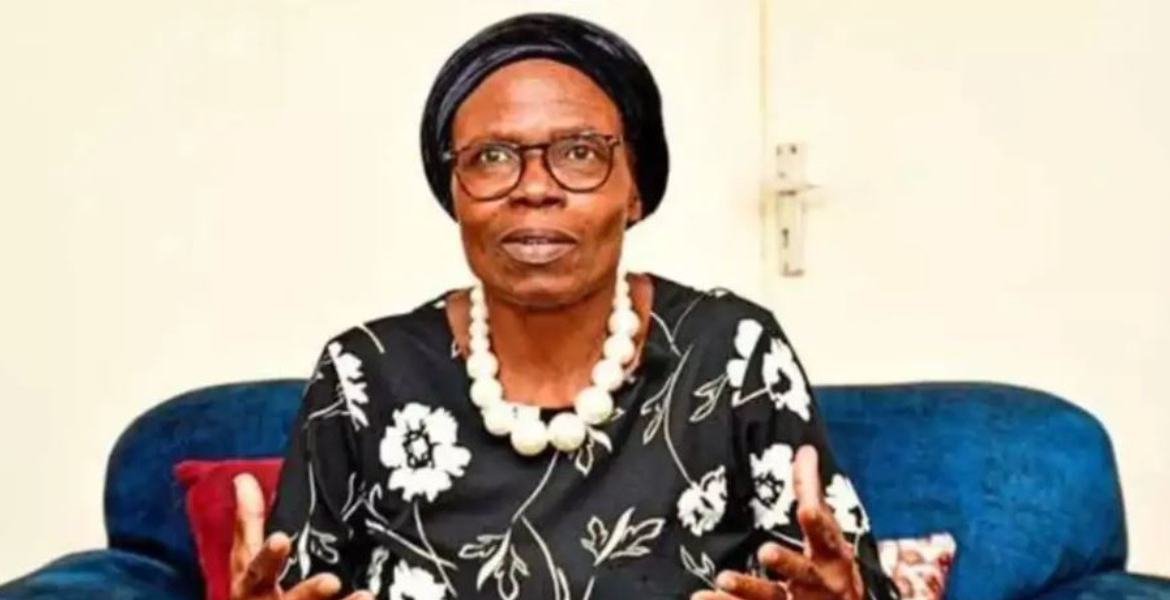Kenyan Journalist Dorothy Kweyu Celebrates Son’s Release After Years on Saudi Death Row

Stephen Munyakho, a Kenyan national also known as Stevo, was released from a Saudi Arabian prison on Tuesday after serving 14 years, marking the end of a protracted legal battle that hinged on a workplace incident in 2011.
Korir Sing’oei, Kenya’s Foreign Affairs Principal Secretary, confirmed Munyakho’s release from Dhaban Prison in Jeddah, signalling the culmination of extensive diplomatic efforts to commute his death sentence. Munyakho, now 51, faced execution following the death of a Yemeni colleague during a physical altercation. Originally sentenced to five years for manslaughter, the victim's family appealed the ruling, escalating the punishment to capital punishment under Sharia law.
This sentence, however, could be averted through the payment of diya, or blood money, to the victim's family as restitution. The demand was initially set at Sh400 million, which was later reduced to Sh150 million. This substantial sum prompted Munyakho’s family and supporters to launch the “Bring Back Stevo” campaign, aimed at raising the necessary funds before a final deadline issued by the victim’s family in October 2023. Wangethi Mwangi, acting chairperson of the campaign, emphasised the urgency, saying that failure to meet the demand would result in authorisation for Munyakho's execution by Saudi authorities.
The financial breakthrough came with a significant contribution from the Muslim World League, a prominent international Islamic organisation, which provided Sh129 million. This intervention, combined with donations from well-wishers and diplomatic negotiations facilitated by Kenya’s mission in Riyadh, enabled the court’s conditions to be met and Munyakho’s release secured. Following his release, Munyakho performed Umra, the minor Islamic pilgrimage, a traditional practice for those freed from incarceration in Saudi Arabia.
Kenyan officials travelled from Jeddah to Riyadh to formally receive him from Saudi authorities, and arrangements are being made for his return to Kenya. For Dorothy Kweyu, Munyakho’s mother, the news of her son’s release brought immense relief after years of uncertainty.
“I will need to see him just to reaffirm the greatness of God,” she said. "His homecoming means a lot to me because, in an African home, he is the leader of the rest.”
Kweyu, a respected journalist and mother of nine, described the emotional toll of the ordeal, highlighting the deep despair that was only lifted by the prospect of her son's freedom. Munyakho’s children, now aged 31, 29, and 24, have grown up during his imprisonment. His eldest daughter was a teenager when he was incarcerated. The family has endured immense emotional and financial strain throughout the campaign to secure his release.
Throughout his imprisonment, Munyakho maintained his innocence, asserting that he never intended to cause the death of his colleague. In a phone call to his mother, he expressed his remorse, saying, “I beg you, I plead, let them know: I never meant to take another’s life.”
Munyakho had moved to Saudi Arabia in 1996 in search of employment, eventually becoming a warehouse manager at a Red Sea tourist resort. Kenya’s diplomatic corps has been commended for its role in negotiating with Saudi authorities and securing extensions to the execution deadline while the fundraising campaign progressed. Principal Secretary Sing’oei acknowledged the sensitivity of the talks, noting that “negotiations were key in stalling the execution as discussions with Saudi officials progressed.”








Add new comment